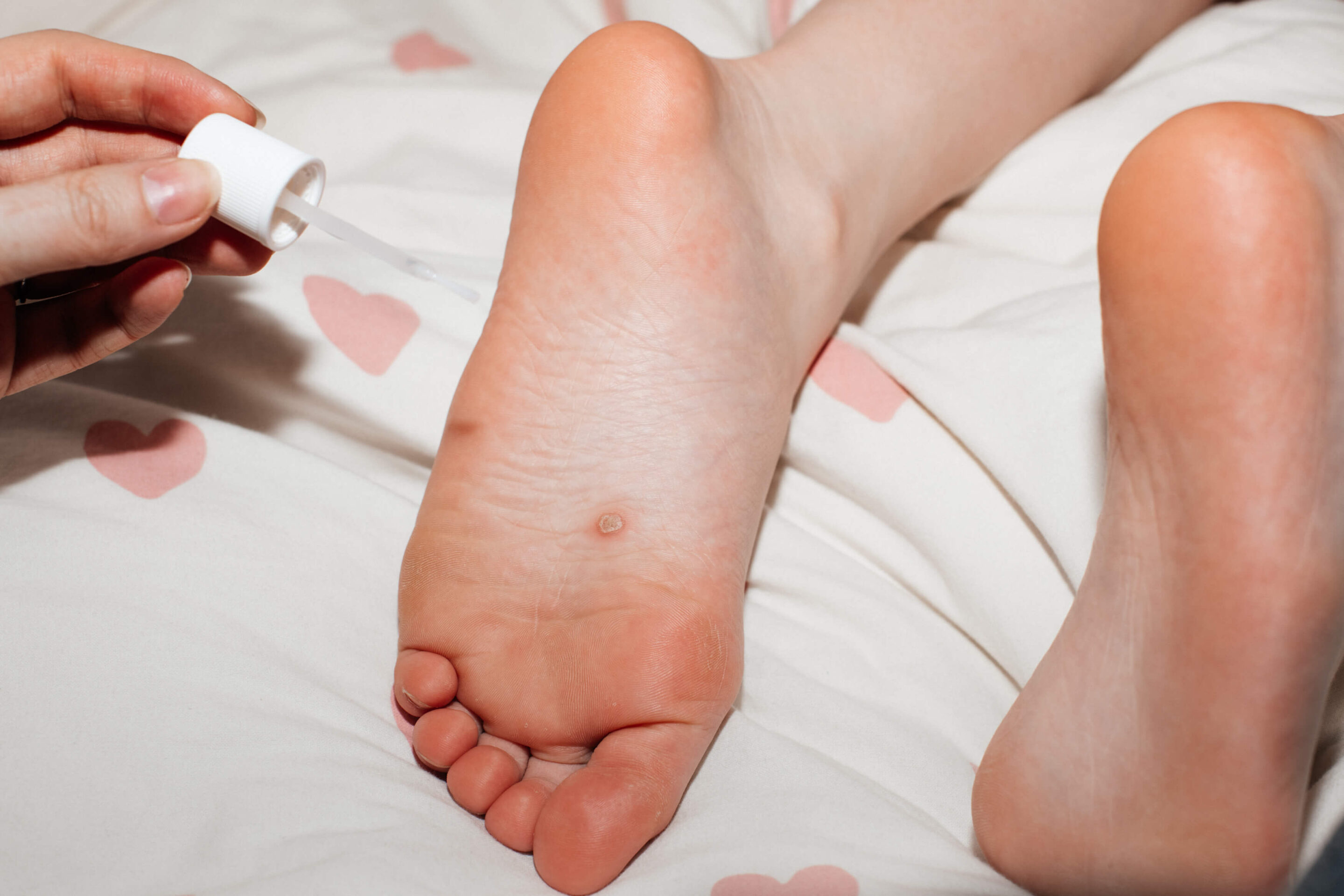Are Plantar Warts Contagious?
Have you noticed a painful growth on your foot and wondered if it’s contagious? Plantar warts, small growths on the soles of the feet, often cause discomfort and raise concerns about spreading. These non-cancerous lesions are caused by the human papillomavirus (HPV), a virus that thrives in specific environments. While they can spread, understanding how they do so and taking steps to prevent their transmission is key to protecting yourself and others.
What Are Plantar Warts?
Plantar warts are growths on the soles of the feet caused by certain strains of HPV. Unlike other warts that may appear on hands or fingers, plantar warts often grow inward due to the pressure exerted when walking or standing.
These warts typically have a rough, grainy texture and may be surrounded by hardened skin or calluses. Sometimes, they feature tiny black dots, which are clotted blood vessels. Though small, plantar warts can cause significant pain, especially when they develop in weight-bearing areas.
How Do Plantar Warts Spread?
Understanding HPV
Plantar warts are caused by HPV strains that thrive in warm, moist environments. This virus enters the body through tiny cuts, scrapes, or cracks in the skin, allowing it to infect deeper layers.
Environments That Promote Spread
Public spaces with damp surfaces, such as:
- Swimming pools
- Locker rooms
- Communal showers
- Gym floors
These areas are common breeding grounds for HPV. The virus can remain on surfaces for extended periods, waiting for someone to make contact.
Why Some People Are More Susceptible
Individuals with compromised immune systems, existing skin conditions, or frequent exposure to high-risk environments are more likely to develop plantar warts. Children and teens also face a higher risk due to their active lifestyles and thinner skin.
Are Plantar Warts Contagious to Others?
Plantar warts are indeed contagious and can spread in several ways:
- Direct Contact: Skin-to-skin contact with an infected area can transmit the virus.
- Contaminated Surfaces: Touching surfaces like pool decks or communal mats increases the risk.
- Shared Personal Items: Towels, socks, and shoes can harbor the virus, spreading it among family members or teammates.
- Spread to Other Body Parts: Scratching or picking at a wart can transfer the virus to other areas of your body, leading to new growth.
Can Plantar Warts Spread Without Symptoms?
Even if someone doesn’t display visible signs of plantar warts, they can still carry and spread HPV. The virus may remain dormant for weeks or even months, creating a hidden risk in shared spaces. This emphasizes the importance of preventive measures, even when warts aren’t visibly present.
How to Prevent the Spread of Plantar Warts
Preventing plantar warts involves simple but effective habits:
- Personal Hygiene: Wash your feet thoroughly, especially after using public spaces, and ensure they are completely dry to avoid creating a moist environment for HPV.
- Protective Footwear: Always wear sandals or flip-flops in communal areas like pools, locker rooms, and public showers to minimize direct contact with contaminated surfaces.
- Avoid Sharing Items: Refrain from sharing towels, shoes, or socks, even with close family members, to prevent spreading the virus.
- Disinfect Footwear: Regularly clean and disinfect your shoes, especially if you’ve been exposed to communal areas or suspect a wart.
Practicing these habits can significantly reduce the likelihood of developing or spreading plantar warts.
What to Do If You Have Plantar Warts
Seek Treatment Early
If you notice a growth on your foot that resembles a plantar wart, consult our expert podiatrists as soon as possible. Early intervention prevents the wart from spreading or becoming more painful.
Treatment Options
Several effective treatments are available, including:
- Cryotherapy: Freezing the wart with liquid nitrogen to destroy infected tissue.
- Salicylic Acid: A topical treatment that gradually removes layers of the wart.
- Laser Therapy: Advanced techniques that target and eliminate stubborn warts.
Professional care ensures the treatment is tailored to your specific needs and reduces the chances of recurrence.
Can Plantar Warts Recur After Treatment?
Risk of Recurrence
Even with effective treatment, plantar warts can return if preventive measures aren’t followed. This is because HPV may remain on surfaces or in the body, leading to reinfection.
Building Immunity
Over time, some individuals develop immunity to certain HPV strains, reducing their likelihood of future outbreaks. However, consistent hygiene and protective habits remain crucial.
Protect Yourself from the Spread of Plantar Warts
Plantar warts are a common yet preventable foot condition caused by HPV. Understanding how they spread and taking proactive measures to protect yourself can make all the difference.
If you’re dealing with plantar warts, seeking professional treatment early ensures effective care and helps prevent the condition from worsening. Contact us now and take the first step toward healthy, pain-free feet!


